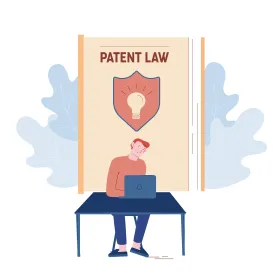In a unanimous February 1, 2023 Order, a Federal Circuit panel granted Google LLC’s petition for a writ of mandamus directing the U.S. District Court for the Western District of Texas to vacate its order denying transfer of patent infringement claims to the Northern District of California. As discussed here, this precedential decision signals the Federal Circuit’s intent to support the transfer of cases that have little to no connection with the forum where filed and has implications for litigants and their strategies, particularly in light of recent standing orders issued by the Western District of Texas on the assignment of patent cases.
The Federal Circuit Decision
The Federal Circuit found that the District Court clearly abused its discretion in denying Google’s motion to transfer. Looking at the private and public interest factors that the Fifth Circuit has considered in the transfer context, all of them either weighed in favor of transfer or were, at best, neutral.
Private Interest Factors
As the opinion sets forth, the private interest factors governing transfer of venue are: “(1) the relative ease of access to sources of proof; (2) the availability of compulsory process to secure the attendance of witnesses; (3) the cost of attendance for willing witnesses; and (4) all other practical problems that make trial of a case easy, expeditious and inexpensive.”
Addressing these in turn, the panel found that the “access to sources of proof” factor favored transfer and was not neutral as the District Court had held. Indeed, the panel found that the Northern District of California “would clearly provide easier access to sources of proof, including documents, and be more convenient for potential non-party witnesses.” Physical prototypes of the accused products are found only in the Northern District as well. By contrast, Plaintiff Jawbone Innovations, LLC simply rented space in Waco, Texas to store documents relating to patents and to conduct some limited distribution and sales activities, but no employees worked there, or anywhere else, in the Western District.
The “availability of compulsory process” factor also weighed in favor of transfer. The Northern District of California could compel multiple potential witnesses to appear at trial whereas the Western District of Texas could not compel any of the witnesses that had been identified. The District Court did correctly find that this factor weighed in favor of transfer.
The “cost of attendance for willing witnesses” factor also weighed “heavily in favor of transfer” given the preponderance of witnesses in the Northern District. Thus, the District Court erred in finding that this factor weighed only slightly in favor of transfer. Indeed, the panel found fault with the District Court’s discounting of sworn testimony provided by Google that three of Google’s Texas-based employees identified by Jawbone as having relevant knowledge did not actually work on the accused features. In any event, there were eleven other potential witnesses that resided in the Northern District.
Lastly, the Federal Circuit found clearly erroneous the District Court’s decision that the “practical problems that make trial of a case easy, expeditious and inexpensive” factor weighed against transfer. The basis for that determination was a then co-pending case brought by Jawbone against Apple in the Western District. However, that case had since been dismissed. Even if it had not been dismissed, the Federal Circuit reasoned that this factor should have been deemed neutral by the District Court because “whatever efficiencies would be had by combining cases asserting the same patents against different defendants with different accused products are as likely to be enjoyed by transferring this case as not.”
Public Interest Factors
The public interest factors are “(1) the administrative difficulties flowing from court congestion; (2) the local interest in having localized interests decided at home; (3) the familiarity of the forum with the law that will govern the case; and (4) the avoidance of unnecessary problems of conflict of laws or in the application of foreign law.”
The “administrative difficulties flowing from court congestion” factor was deemed neutral. The District Court had ruled that this factor weighed slightly against transfer based on its assessment of the average time to trial data. The Federal Circuit, however, deemed this factor to be neutral because the time-to-trial difference is not significant where there is no “need of a quick resolution.” Here, Jawbone was not engaged in product competition in the marketplace in a way that “in other patent cases, might add urgency to case resolution and give some significance to the time-to-trial difference.”
The Federal Circuit also found erroneous the conclusion that the “local interest” factor was neutral. The case actually had a “particularized connection with Northern California” given that the technology was invented there and Google’s patents were prosecuted from that forum. By contrast, Jawbone “had no meaningful presence in the Western District of Texas…”
As to the final two factors, the Federal Circuit agreed with the District Court and both parties that the “familiarity of the forum with the law that will govern the case” and the “problems associated with conflicts of law” was neutral.
Assignment of Patent Cases in the Western District of Texas
In conjunction with the Federal Circuit’s willingness to mandate the transfer of venue in patent cases, litigants should also be aware of some recent orders governing assignment of cases in the Western District of Texas. In a July 25, 2022 order by then-Chief Judge Orlando L. Garcia, patent cases were to be spread out equally among the 12 judges in that district, thereby limiting the ability of plaintiffs to selectively file in the Waco division in order to draw Judge Alan Albright. But as one commentator has noted, there was a slowdown in the filing of new patent cases in the Waco division after the July 25, 2022 order took effect.
Shortly before taking senior status, Judge Garcia issued a November 9, 2022 Amended Order under which Judge Albright will be assigned “all cases and proceedings in the Waco Division” starting December 1, 2022. Although this order does not explicitly refer to the prior one, it appears to have returned matters to the pre-July 25, 2022 state of affairs. Since December 1, 2022, nearly all the patent infringement cases filed in the Waco Division have been assigned to Judge Albright.
Takeaways
In sum, although a decision denying a motion to transfer venue is subject to a deferential standard of review, the Federal Circuit will not hesitate to mandate transfer if the private and public interest factors weigh in favor of it. Additionally, in analyzing potential venues for infringement actions, litigants should keep apprised of any new or amended standing orders that could affect the assignment of patent cases in the Western District of Texas.




 />i
/>i

